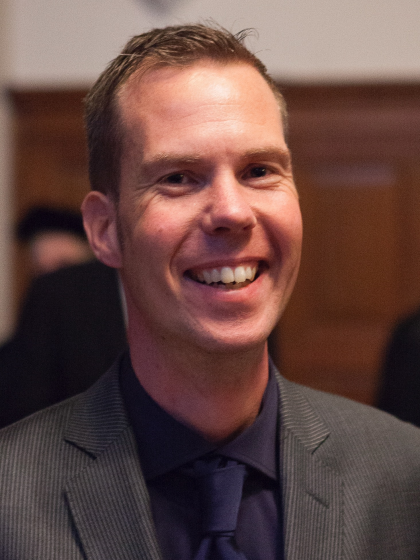dr. B.C.M. (Benno) Haarman

Dr. Benno C.M. Haarman, assistant professor and psychiatrist, integrates teaching as a core component of his academic and clinical responsibilities. His teaching philosophy focuses on bridging research and practice, inspiring students and trainees to connect theoretical knowledge with practical applications in psychiatry. He holds a University Teaching Qualification (BKO), Qualified Teacher Status in Biology and Chemistry, and a Certificate in Excellence for PhD Supervision, demonstrating his dedication to delivering high-quality education and mentorship.
Undergraduate Education
Dr. Haarman contributes to the Bachelor of Medicine program by delivering lectures on mood and anxiety disorders, neuroinflammation, and the gut-brain axis. His sessions combine foundational neuroscience with clinical psychiatry, offering students a comprehensive understanding of the biological mechanisms underlying mental health conditions.
Postgraduate Training
As Head of the Mood and Anxiety Disorders Program at UMCG, Dr. Haarman mentors psychiatry residents, supporting their professional development through hands-on clinical supervision and academic training. This includes guidance in advanced treatments such as repetitive transcranial magnetic stimulation (rTMS) and deep brain stimulation (DBS), emphasizing evidence-based practice and interdisciplinary collaboration.
PhD Supervision
Dr. Haarman has successfully supervised multiple PhD candidates to completion and currently oversees four ongoing PhD projects. These projects explore innovative research areas such as molecular imaging, neuromodulation, and the gut-brain axis. His supervision philosophy emphasizes independence, resilience, and a multidisciplinary approach, preparing students for leadership roles in psychiatry.
Guest Lectures and Workshops
Dr. Haarman is a regular guest lecturer at national and international conferences, where he shares insights into precision psychiatry and neuromodulation. He also organizes workshops on implementing advanced treatments like rTMS and DBS, translating complex research findings into practical clinical innovations.
